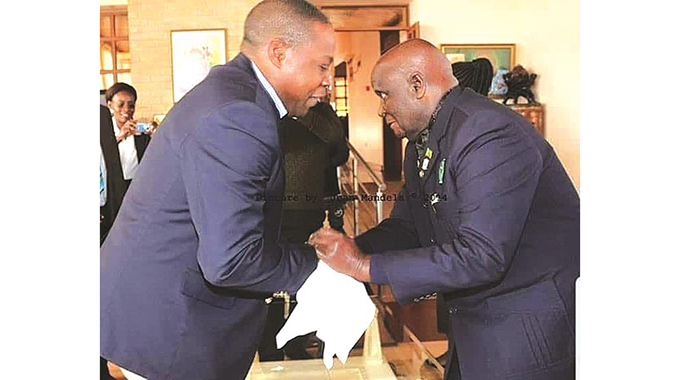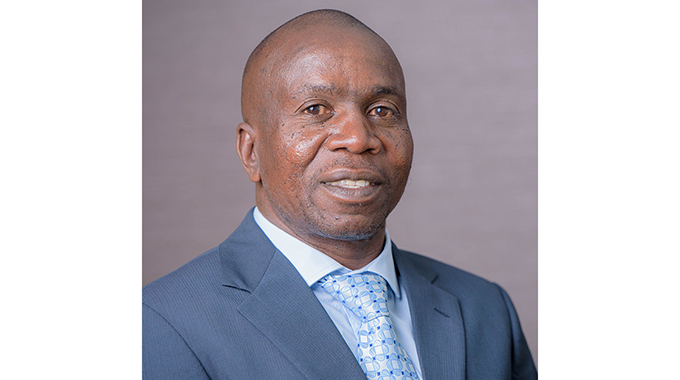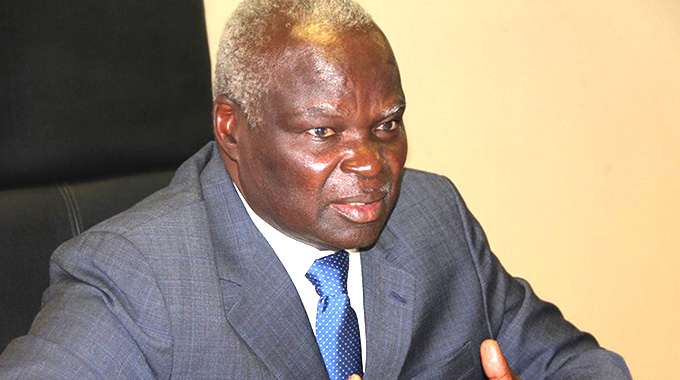Little did we know we were saying goodbye

And, just like that, his star disappeared from SIGHT, just when it was beginning to shine very BRIGHT, in his quest to become a football KNIGHT, a young life destroyed on that doomed FLIGHT, when the plane came down on a grim dark April NIGHT.
Sharuko On Saturday
THE founding father of Zambia, Dr Kenneth Kaunda, turned 97 on Thursday — he is now just three of what the guys in cricket call an unbeaten century.
It represents a fine innings, given a batsman weathers everything, thrown at him by the bowlers, to score a hundred runs.
Four years ago, renowned local sculptor, Dominic Benhura, presented the former Zambian president, with a stone sculpture, in honour of his 93rd birthday.
Ten years earlier, on the occasion of his 83rd birthday anniversary, in April 2007, the BBC asked their listeners to send any football-related question, to the icon affectionately known simply as “KK.’’
After all, throughout his life, Dr Kaunda has been known as a passionate football fan to such an extent the country’s national team used to be known as the “KK XI.’’
And, boy oh boy, they were good, very good.
Zimbabwean sports journalist, Farayi Mungazi, was handed the honour by the BBC team, to personally deliver the questions, in Lusaka, and then bring back the answers.
The conversation, a part of which was published on the BBC Sport website, made some interesting reading:
Question — Given the choice between golf and football, which sport would choose? We love you and happy birthday,
Dr Kk — Henrique Kakoma Sungeti, Angola.
Dr KK — “As an old man I prefer golf, because of my strength, but football, there is nothing that can beat football for me.”
Question — Who do you regard as the best Zambian footballer of all time? Is it Godfrey Chitalu, Peter Kaumba, Freddie Mwila or Kalusha Bwalya? — Thabane Sutu, Lesotho
Dr KK — “This is what I call Mission Impossible, all these players are great and it will not be fair for me to choose one player over the other.”
Question — What was Dr Kaunda’s initial reaction, to the tragic deaths of so many of the national team, in the 1993 air disaster? — Christopher Maune, Malawian, South Africa
Dr KK — “I was getting onto the plane to go to South Africa. It was my birthday so it is very hard to forget this terrible event. It was such a loss to the nation.”
Somehow, by some stroke of cruel fate, the darkest day, in the history of Zambian football, unfolded on the eve of Dr Kaunda’s birthday.
That was in April 1993.
The plane crash occurred on the night of April 27, 1993, just hours before Dr Kaunda would mark his 69th birthday, the following day.
This week, for the 28th year in a row, the people of Zambia remembered the day their team, which many analysts are convinced would have qualified for the ’94 World Cup finals, died.
And, once again, the nation’s founding father, was there with them, to mark yet another anniversary of this disaster, whose giant shadow continues to hang in a country, where football is more than just a sport.
The next day, it was then time to celebrate the gift of life, which Dr KK has been presented with in such abundance, with the African statesman, marking his 97th birthday.
President Edgar Lungu even paid him a visit, at his residence in Lusaka, to thank Dr KK for the massive role he played, in shaping the country.
“Zambia cannot be what it is without your contribution. We thank God. It is imperative that we celebrate your life and we continue to learn from you,” President Lungu said.
LITTLE DID WE KNOW THAT DAY, WE WERE SAYING GOODBYE TO OUR BROTHERS
Derby Mankinka will always provide us, here in Zimbabwe, with a powerful symbol, of someone we really knew, among those whose lives were cut short in that disaster.
He was only 27, at the very peak of his athletic powers, a playmaker, with such outrageous natural gifts, his play had poetry to it, so easy on the eye, setting the bar, for individual brilliance, quite high.
With a box-cut hairstyle, like Will Smith in his days as the Fresh Prince of Bel Air, there was something about Derby,which made him standout, in the crowd.
At times, there was a touch of arrogance, in his play, which comes with tones of confidence, and his genius provided both comfort, to his teammates, and terror, to his opponents.
He played for a team Darryn T, which no one seemingly supported, but because of him, the fans kept finding a reason to come and watch their games, just for a Sunday afternoon’s date with his amazing craftsmanship.
But, sadly, Derby was a shooting star, both in terms of the time he spent in this country, and the overall time he spent, on this earth.
And, just like that, his star disappeared from sight, just when it was beginning to shine quite bright, in his quest to become a football knight, a young life destroyed on that doomed flight, when the plane came down on that dark April night.
He was here for a few months, played just a dozen games or so, but that was still good enough for him to win a place on the Soccer Stars of the Year calendar.
Three years earlier, Derby had won the Zambian Footballer of the Year.
Maybe, Derby was always meant to play here, returning to the place where he was born, in Harare on September 5, 1965, at a time the football gods were in the mood to create magical playmakers.
After all, just 32 days later, on October 17 that year, another playmaking genius, Moses Chunga, was also born in Harare.
And, he would, in time, transform himself into a legend of the game, in this country.
Derby had stints in Poland, for seven-time champions Lech Poznan, the club which introduced Robert Lewandowski to the world, when the hot-shot forward was just starting his journey to superstardom.
And, with his countrymen, Wisdom Chansa and Richard Mwanza, they became the first foreigners to play in the Soviet top-flight league.
Tragically, all the three players died in that plane crash, off the coast of Gabon.
But, they were not the only ones who mattered to us, after all, just two weeks before that plane came down, off the coast of Gabon, we had played the Zambians, in Lusaka, in a ’94 AFCON qualifier.
A tight game ended goalless, with neither side finding the breakthrough, in a game that was long on quality but clearly short on goals.
But, as our players shook hands with their hosts, after this epic battle, where both defences impressed, little did we know we were saying goodbye to our brothers, with whom we share more than just the shores of the Zambezi.
A people who had sacrificed so much, in providing us with a home, during our quest for our nationhood, back in the days when we fought for the right for our Independence.
A people who, in more ways than one, are just like us, to such an extent that when we adopted one of their finest football sons, the late Willard Mashinkila-Khumalo, and converted him into one of our stars, it all seemed natural.
We didn’t know it, until we were in Bulawayo to lay Willard to rest, when we were told by scores of his relatives, who came from Zambia for the funeral, about his intimate connections, to our northern neighbours.
We got to know the story about his uncle, who was approached by Zambian authorities, after Kalusha Bwalya left for Belgium, in 1985, to persuade Willard to come and play in that country.
Because, they told us, the authorities wanted someone to provide their league with the X-Factor, which King Kalu had given it.
THEY MIGHT JUST BE NUMBERS BUT THEY TELL A FASCINATING STORY
I have always considered myself a student of football, someone who believes this isn’t just another game, but a special sporting discipline which, in a way, defines our lives.
Now, and again, I have always asked myself, why is it that this simple game, which can be played anywhere by anyone, the rich and the poor, transformed itself into such an irresistible force, in the history of mankind?
Why didn’t both rugby union and rugby league combine to have such an enduring impact on the globe?
The more the questions, the more I have been forced to read about this beautiful game called football, research about its amazing links to life and question why some things happen the way they do.
And, in the week our Zambian colleagues have been marking yet another anniversary of the Gabonese disaster, and also celebrating life, as represented by their iconic statesman, Dr Kaunda, I found myself having to deal with so many questions:
Why is it that some numbers, especially EIGHT and EIGHTEEN, seem to feature prominently, the more one takes a deeper look into that plane crash?
Why is it that the chartered airforce jet, which came down in Gabon, had first entered service 18 years earlier, in 1975, and this is the same number of players (18), who perished, in that disaster?
Why is it that in April 1975, Alex Chola scored a hattrick for Chipolopolo, in an AFCON qualifier against Malawi, a feat Kelvin Mutale repeated, 18 years later, in April 1993, against Mauritius, and both men died in that plane crash?
Why is it that there were 18 years, between the time the disaster struck, in April 1993, in Gabon, and the moment Zambia beat Comoros 2-1, on September 4, 2011, to qualify for the 2012 AFCON finals, which they won, in Gabon?
Why is it that this is the only occasion Zambia have failed to qualify, for three Nations Cup finals, since they started taking part in this tournament, in the 1970 AFCON qualifiers?
And, why is it that the team which denied them a place in Cameroon, the Warriors, are a side marking 18 years, since they first qualified for this tournament, in 2003?
Why is it that 18 is the figure one gets when you add the number of games the Warriors played in the last qualifiers (6), the games they won (2), the games they lost (2), the games they drew (2) and the goals they scored (6)?
Why is it that if we take the dead rubber, which Chipolopolo won in Harare, out of consideration, 18 is the figure one gets when you add the goals the Zambians scored (6) and they conceded (12) when they were still in contention for a place in Cameroon?
Why is it that 18 is also the number of points one gets, when you add the final points tally for the group winners Algeria (14), and the bottom-placed side Botswana (four), with the Zebras’ only victory, coming against Chipolopolo?
Why is it that when one adds the combined number of the group games which were won (9), in these qualifiers, and the combined number of matches which were lost (11), it all comes to the number 18?
Why is it that the combined points tally from the victories between Algeria (four wins = 12 points) and Zimbabwe (two wins = six points), the two nations which denied the Zambians a place in Cameroon, we get the number 18?
Why is it that the Zambians’ Finest Hour, when they won the 2012 AFCON tournament in Gabon, had to come in the year their super fan, former president Dr Kaunda, turned 88?
Why is it that Kalusha, the star of their Olympic Games adventure in ’88, the one spared by circumstances from being on that ill-fated flight, had to be the FAZ president in 2012, when they were crowned African champions?
Why is it that the results of all the two group matches, which the Zambians won at the ’88 Olympics, produced a similar score (4-0 against Italy) and (4-0 against Guatemala) and, if we add the goals, we get the number EIGHT?
Why is it that the results of the two games, which the Zambians failed to win at the same Olympics, all featured four goals (2-2 against Iraq) and (0-4 against West Germany) and, if we add the goals, we get the number EIGHT?
Why is it that there were EIGHT tournaments between the ’94 AFCON finals, the one their heroes were killed trying to qualify, and the 2012 AFCON finals, which the Zambians won in Gabon?
Why is it that the success in 2012 came exactly 18 years after the first AFCON finals, in 1994, which the Zambians played without their fallen heroes?
Why is it that the penalties, which the Zambians had to convert in the shootout lottery, to win the 2012 AFCON final against Cote d’Ivoire, had to be EIGHT?
Why is it that the first group game, at the 2012 AFCON finals, had to be against Senegal, the very team those fallen heroes were meant to play, when their plane came down?
Let’s not even talk about history, including Portuguese explorer Francisco de Lacerda, the first recorded European to visit Zambia, who came in the 18th century.
He also died, during that expedition, in 1798.
But, it would be another explorer, and missionary, David Livingstone, who would have a profound influence, on this game, and this country.
The late Dennis Liwewe suggested, in David Goldblatt’s book, “The Ball is Round, A History Of Global Football,’’ Livingstone brought three things with him to Africa, “a bible, a medical kit and a football.’’
Livingstone died on May 1, 1873, in Chief Chitambo Village, Zambia.
To God Be The Glory!
Peace to the GEPA Chief, the Big Fish, George Norton, Daily Service and all the Chakariboys in the struggle.
Come on Warriors!!!!!!!!!!!!!!!!!!!!!!!!!
Khamaldinhoooooooooooooooooo!
Text Feedback — 0772545199
WhatsApp — 0772545199
Email — [email protected]; [email protected]
You can also interact with me on Twitter (@Chakariboy), Facebook, Instagram (sharukor) and Skype (sharuko58) and GamePlan, the authoritative football magazine show on ZTV, where I interact with the legendary Charles Mabika, is back every Wednesday night at 9.30pm








Comments